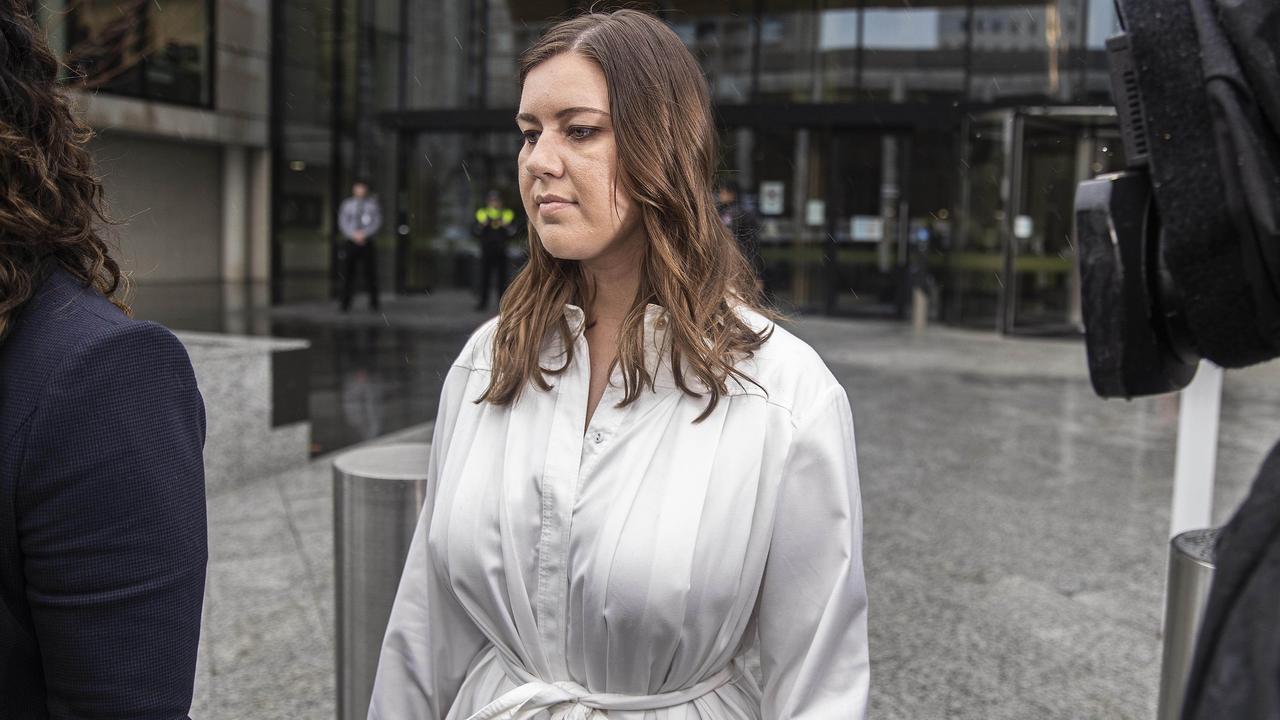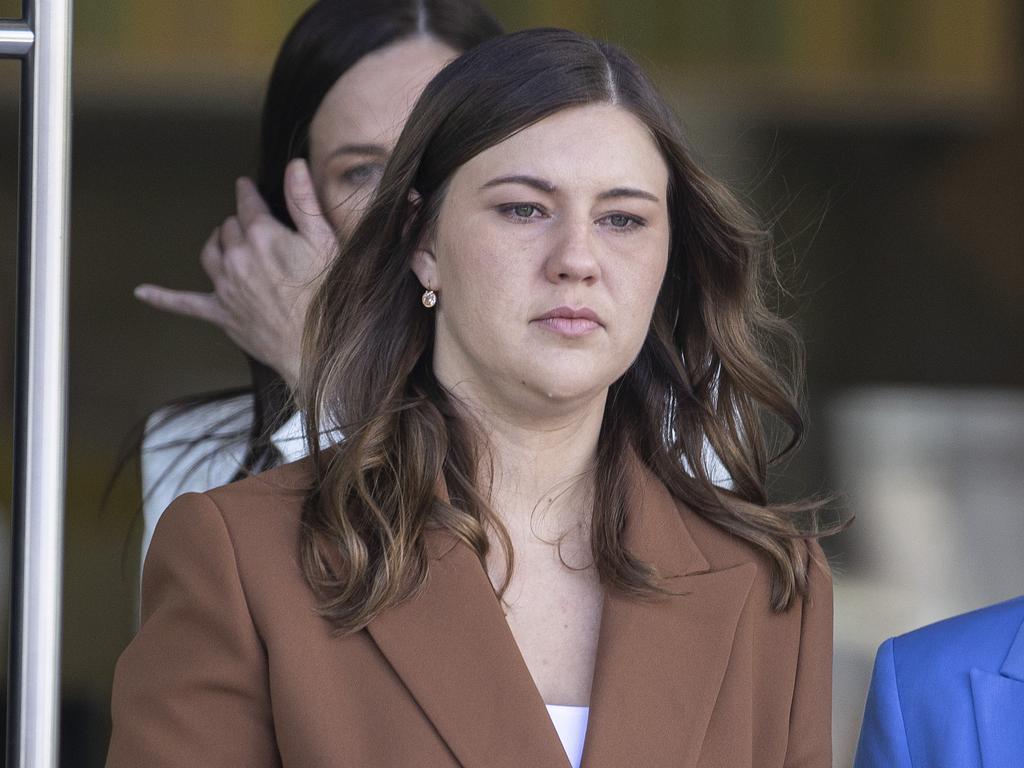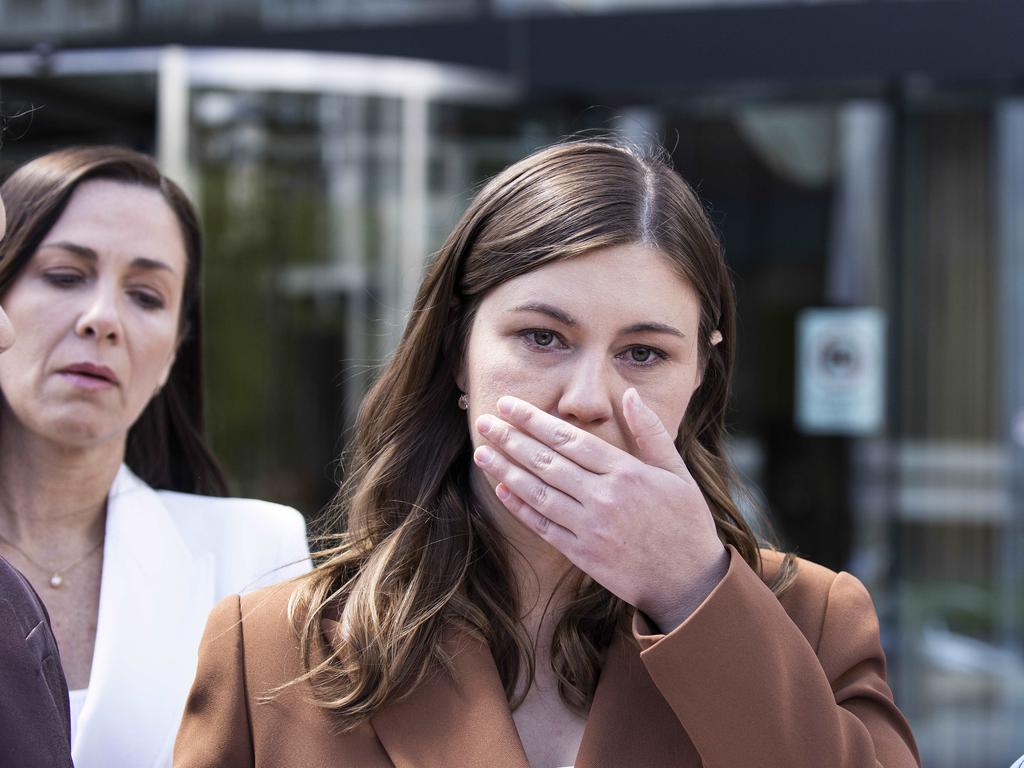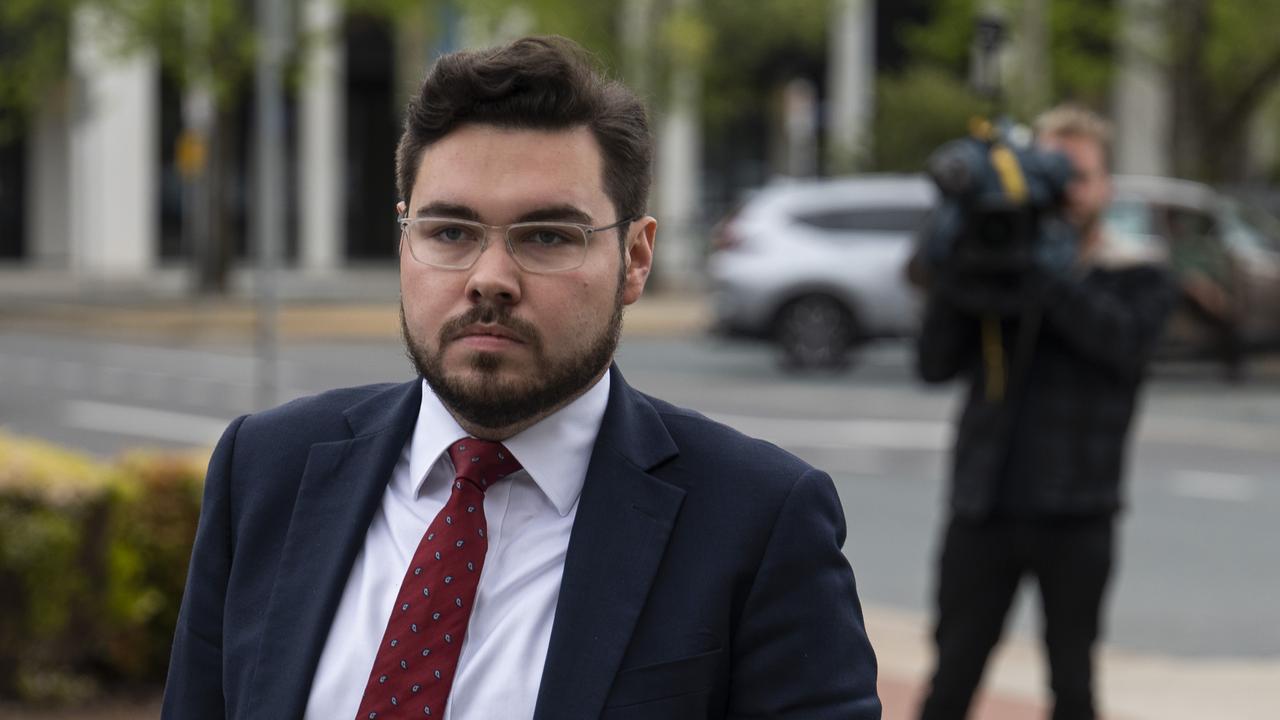Why Brittany Higgins went missing during first trial
Brittany Higgins went missing during the trial of Bruce Lehrmann. Now, the reason for her disappearance has been revealed for the first time.

Exclusive
Brittany Higgins was hospitalised on mental health grounds during the first trial after she went missing and police were called to locate her in Canberra.
News.com.au can reveal for the first time the reason for her disappearance after the ACT Supreme Court lifted an October 10 suppression order.
The serious incident involved multiple police cars being called to search for her and an ambulance being dispatched to her hotel.
She was located by police walking in the rain and taken to the Canberra hospital before she spent five days at a Canberra mental health clinic.
At the conclusion of her treatment, she returned to court to complete her cross examination.
New evidence that the “ongoing trauma” associated with the prosecution of Bruce Lehrmann poses an unacceptable risk to the life of the complainant Brittany Higgins has prompted prosecutors to drop the rape charge and not proceed with a second trial.
Mr Lehrmann has consistently denied the allegations.
ACT Director of Public Prosecutions Shane Drumgold confirmed today he had reviewed new medical evidence regarding Ms Higgins.
“I have recently received compelling evidence from two independent medical experts, that the ongoing trauma associated with this prosecution presents an unacceptable and significant risk to the life of the complainant,’’ he said.

“The evidence makes it clear this is not limited to the harm of giving evidence in the witness box, rather applies whether or not the complainant is required to re-enter the witness box in the retrial.
“Whilst the pursuit of justice is essential for my office and the community, the safety of a complainant in a sexual assault matter, must be paramount.
“In light of the compelling independent medical opinions, and balancing all factors, I have made the difficult decision that it is no longer in the public interest to pursue a prosecution at the risk of the complainant’s life.”
Ms Higgins was readmitted to hospital on Thursday.
The former Liberal staffer granted permission for her friend and supporter Emma Webster to release the following statement.
“Brittany is in hospital getting the treatment and support she needs,’’ Ms Webster said.
“The last couple of years have been difficult and unrelenting.”
“While it’s disappointing the trial has ended this way, Brittany’s health and safety must always come first.”

“Brittany is extremely grateful for all the support she has received, particularly from our mental health care workers.”
But until now any reporting of her October 10 hospitalisation was prohibited by the Supreme Court.
The trial was briefly delayed during the second week as a result, with Ms Higgins unavailable to appear in court.
Former Liberal staffer Bruce Lehrmann, who was charged with one count of sex without consent in ministerial office of Linda Reynolds in the early hours of March 23, 2019, pleaded not guilty.
He was never convicted and the jury was discharged without reaching a verdict after an allegation of juror misconduct.
On October 10, the jury was told Ms Higgins, who was due to continue facing questions from Mr Lehrmann’s lawyer Steven Whybrow, under cross-examination, was unavailable for the trial proceedings.
Chief Justice Lucy McCallum informed the jury there would be a slight delay in proceedings this morning as the witnesses are gathered.
“The complainant is unavailable today, we propose to deal with that by calling some other witnesses but the prosecution needs a bit of time to herd the other witnesses that will be called to fill that space,” Chief Justice McCallum said.
Ms Higgins’ disappearance followed an emotional day on the stand.

The court heard the former Liberal staffer never attended the GP appointment, with Mr Whybrow stating the reason for this was that she “hadn’t had sex with anyone on Friday night consensual or otherwise”.
“That’s not true,” Ms Higgins said.
Mr Whybrow continued, suggesting she told Ms Brown she needed to go to the doctor to “bolster your false accusation that something non-consensual had happened with Mr Lehrmann”.
Mr Whybrow suggested the reason the didn’t follow through with any of the GP appointments is because she “hadn’t had sexual intercourse with Mr Lehrmann”.
“You are so incorrect. I don’t know if you’ve ever gone through a trauma before but confronting it head on with professionals is a really difficult thing to do,” Ms Higgins said, becoming visibly upset.

“I’d slowly started telling my inner circle of friends. It was very, very hard. I was bed bound. I was doing my best in extremely trying circumstances.
“I completely reject everything you are saying,” she said.
At the conclusion of the aborted first trial, Chief Justice Lucy McCallum told the court that she also wished to reflect on the fact the role of defence counsel was “poorly understood”.
“I want to say it to you all personally, to the counsel in the trial, to thank you for the manner in which you have conducted this trial,” she said.
“You have all behaved in an exemplary way in accordance with the finest traditions of the Bar. As I said, the role particularly of defence counsel is sometimes poorly understood and can visit great hardship on counsel who are doing no more than upholding the finest traditions of the Bar in appearing for persons accused of serious offences and ensuring that they are well represented and receive a fair trial.
“Also to the prosecutors, whose behaviour has been extremely fair.”
Originally published as Why Brittany Higgins went missing during first trial



